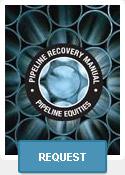Are you trying to navigate the legalities of a potential pipeline easement on your land? Since you are granting a pipeline company to use a portion of your land for their pipeline, you must fully understand the terms of any easement agreement and consult with legal counsel before signing. This includes the length of the easement, the specific rights granted, and any compensation.
Did you buy land with a pipeline easement? Pipeline easement contracts are often bundled in the sale of a property at which point you will want to familiarize yourself with land rights and responsibilities.
In some cases when an agreement cannot be reached with a landowner, pipeline companies may seek the right of eminent domain. This legal process allows the company to use private land for public utility purposes, often after compensation is determined through a legal process.
Landowners will usually receive a one-time payment or a recurring fee for allowing the easement on their property. The valuation of the easement often depends on the land’s market value and the impact of the pipeline on that value.
Pipeline easements usually come with restrictions on how the land can be used above the pipeline. This might include limitations on building structures, planting certain types of trees, or altering the land in ways that could affect the pipeline. It is important to be clear about your rights during the pipeline’s construction and afterwards. This includes access to your property, restoration of the land post-construction, and any ongoing maintenance responsibilities. It is important that the pipeline easement contract outlines the conditions under which the easement can be terminated and the land restored if the pipeline is abandoned.
Understanding the safety measures the pipeline company will undertake is something many owners have overlooked in the past. This includes their plans for pipeline maintenance, emergency response, and environmental protection. You must consider the long-term impacts of the easement on your property, including potential resale value and any future land use plans you might have. You need to decide whether the pipeline is safe and fair to you.
You have the right to negotiate the terms of the easement agreement prior to construction. After construction, you are limited to what is in the contract and how that contract can be exploited. Speaking with legal counsel ensures your rights are protected. They can assist in negotiations and help you understand any potential issues that may arise since each pipeline easement contract is unique. Legal counsel can help familiarize yourself with federal, state, and local regulations and ensure that the pipeline company is in compliance. Don’t try to navigate this alone.














